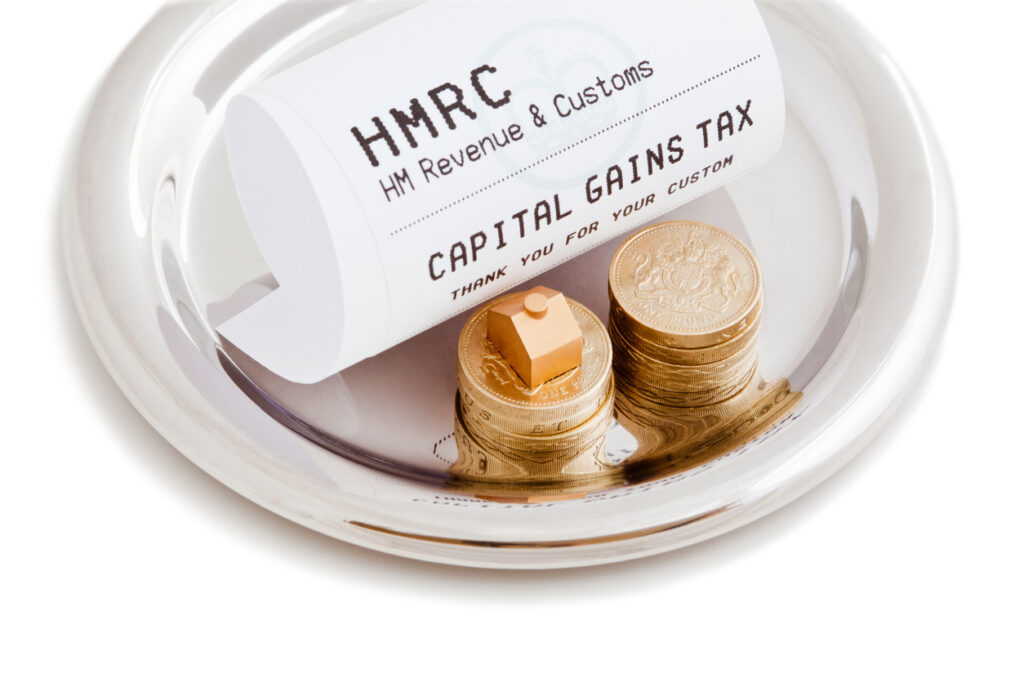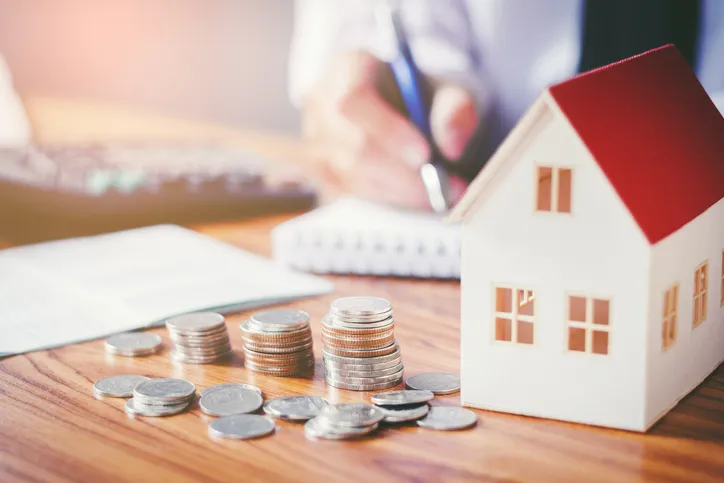This blog has been produced for information purposes only. As a mortgage broker, we’re not able to offer tax advice.
Will you have to pay Capital Gains Tax on a second property? We’ll help you figure that out!
Who Pays Capital Gains Tax on Second Homes?
Any individual selling residential property or land that’s not a primary residence is liable to pay CGT (Capital Gains Tax). You pay it on the sale of a second home, because a second residence – by its very definition – can’t be a primary residence. You also pay Capital Gains Tax when you sell buy-to-let properties, business premises and land – again because they can’t function as your main residence.
You’ll also probably pay CGT when you sell an inherited property. If you already own a home but inherit a second property, you’ll have to nominate one as your main residence. You’ll pay some CGT when you sell the one that isn’t your main home. If you don’t own another property except the one you inherit – and you move into this property, listing it as your main residence for the entire time you own it – then you won’t have to pay CGT when you sell it.
As the name suggests, you pay Capital Gains Tax on the capital gain – or the profit – you make upon the sale of a second home or buy-to-let.
To work out your capital gains:
- Take the amount you sold your property for
- Subtract the price you paid when you bought that property
- This leaves your capital – or taxable – gain
You don’t pay Capital Gains Tax on your total capital gain though. You’re given a certain tax-free allowance of £6,000 (2023/24). This means, if your capital gain or profit from the sale of a property is £100,000, you’ll only pay Capital Gains Tax on £94,000. You can also deduct certain expenses from your capital gain so that you aren’t taxed on them.
If you sell your property for less than you paid for it, you’d have made what’s known as an allowable loss. You wouldn’t be subject to Capital Gains Tax on that transaction if you made an allowable loss.
For more information on Capital Gains Tax expenses and allowable losses, see our guide: Capital Gains Tax on UK Properties.
How Much Is Capital Gains Tax on Second Properties?
The amount you’ll pay in Capital Gains Tax depends on your income for the year you sell your property as well as the profit you make from the sale.
The capital gains you make on your second property are added to your annual income to determine the rate at which you’ll pay Capital Gains Tax.
See the table below for the Income Tax thresholds:
|
Income Tax Band |
Taxable Income 2023 – 2024 |
Income Tax Rate 2023 – 2024 |
Taxable Income 2024 – 2025 |
Income Tax Rate 2024 – 2025 |
|
Personal Allowance |
Up to £12,570 |
0% |
Up to £12,570 |
0% |
|
Basic Rate |
£12,571 – £50,270 |
20% |
£12,571 – £50,270 |
20% |
|
Higher Rate |
£50,271 – £125,139 |
40% |
£50,271 – £125,139 |
40% |
|
Additional Rate |
£125,140 and above |
45%
|
£125,140 and above |
45%
|
You can see how the Income Tax bands compare with the Capital Gains Tax rates on second property in the table below:
|
Taxable Gains on Property 2023 – 2024 |
Capital Gains Tax Rate on Property 2023 – 2024 |
Taxable Gains on Property 2024 – 2025 |
Capital Gains Tax Rate on Property 2024 – 2025 |
|
Up to £6,000 |
0% |
Up to £3,000 |
0% |
|
£6,001 – £50,270 |
18% |
£3,001 – £50,270 |
18% |
|
£50,271 and above |
28% |
£50,271 and above |
28% |
Example
- You earn £100,000 in profits from the sale of your property
- Your taxable gains after any deductible expenses (you have no deductible expenses) and the CGT allowance is: (£100,000 – £6,000) = £94,000
- Your annual salary is: £45,000
- Based on your salary only, you’re a basic rate tax payer:
- You pay 0% Income Tax on the first £12,570 you earn
- You pay Income Tax at 20% on earnings above £12,570: (£45,000 – £12,570) = £32,500
- 20% of £32,430 = (£32,530 x 0.2) = £6,486 in Income Tax
- You pay £6,486 in Income Tax
- You add your taxable gains to your annual salary to reveal your earnings that year: £94,000 + £45,000) = £139,000
- Your new income is above £50,270 and £125,140 so falls into the additional rate tax band:
- You pay 18% CGT on the taxable gains above £45,000 and up to £50,270: (£50,270 – £45,000) = £5,270
- 18% of £5,000 (£5,000 x 0.18) = £948 in CGT
- You pay 28% CGT on the taxable gains on the amount above £50,270: (£139,000 – £50,270) = £88,730
- 28% of £88,730 (£83,000 x 0.28) = £24,844.40 in CGT
- You add these together to reveal the total amount of CGT: (£948 + £24,844.40) = £25,792.40 in CGT
- You pay £25,792.40 in CGT and £6,486 in Income Tax that year
- You pay 18% CGT on the taxable gains above £45,000 and up to £50,270: (£50,270 – £45,000) = £5,270
Can You Avoid Paying Capital Gains Tax on Second Homes?
Searching for ideas on how to avoid Capital Gains Tax on second homes isn’t recommended.
However, you may qualify for Private Residence Relief. This relief can have a sizeable impact on the amount of Capital Gains Tax you pay on the sale of a second home.
Private Residence Relief
You don’t pay Capital Gains Tax when you sell your main residence and move home because you receive something called Private Residence Relief. People selling a second property can receive some Capital Gains Tax relief if they once used that property as their main residence.
Selling a property you once used as your main residence will entitle you to Private Residence Relief for the period you lived in that property, as well as the final 9 months you owned it before the sale. You can work out how much Private Residence Relief you’re entitled to in our Capital Gains Tax on UK Properties guide.
It’s important to note that the Private Residence Relief period was reduced from 18 months to 9 months from April 2020. You can learn more about buy-to-let tax changes in our guide.
What Other Taxes Must I Pay When Selling a Second Home?
Capital Gains Tax is the only tax you pay when selling a second home. You may have other expenses you need to look out for though, like solicitors’ and estate agents’ fees. However, you can deduct these from your capital gains so, although you’ll still have to pay them, you won’t have to pay tax on that amount of your capital gain.
You should always consult a tax adviser about Capital Gains Tax and your options. John Charcol is a mortgage broker and is not able to offer tax advice.


